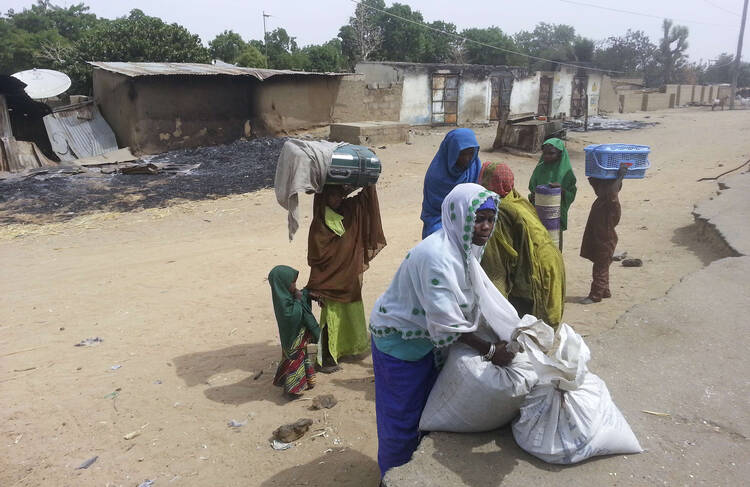Hunger, not religion, is the root cause of conflict in sub-Saharan Africa, said Charles Steinmetz of Duquesne University in Pittsburgh. “A hungry man is an angry man. If there is no job and you cannot feed your family or kids, it leads to extremism,” said Steinmetz, a visiting assistant professor of history. He used as an example the rampages of the Boko Haram in northern Nigeria. Steinmetz said the Islamic extremist group, which has killed 250 people in recent attacks, including 59 children, “sees the government as unable to assist the people.” Though it appears that the violence comes from religious differences, in many ways “it is almost coincidental that these issues break across religious lines,” Steinmetz said. An underlying cause of conflict in Nigeria is the legacy of colonialism. Colonial powers in Nigeria gave more aid and infrastructure to the southern part of the country. Now the development of the South has led to a much stronger economy. “The North is so far behind,” Steinmetz said, that resentments have caused even moderate northern Nigerians to side with the radical group.
Hunger Drives Sectarian Conflict in Africa
Show Comments (
)
Comments are automatically closed two weeks after an article's initial publication. See our comments policy for more.
The latest from america
In these dark times, surrounded by death and destruction in Gaza, we hear the command in the first reading, “Choose life.” What are the ways we can do this in a world that seems to have gone mad?
On July 31, Pope Leo XIV announced that St. John Henry Newman, English theologian, educator, and writer who converted to Catholicism after being an Anglican priest, will be named a Doctor of the Church.
The chair of the USCCB Committee on International Justice and Peace put out a statement on July 31 demanding more humanitarian action for those in Gaza.
Latin Mass, Eucharistic Revival, real presence: In every age—including our own—the church has seen a complex Eucharistic landscape.








